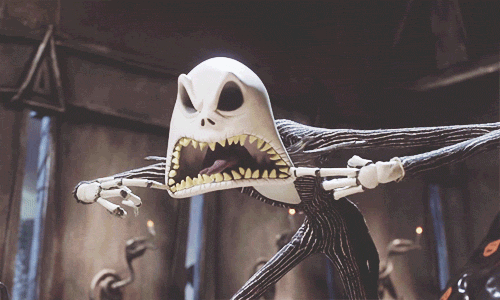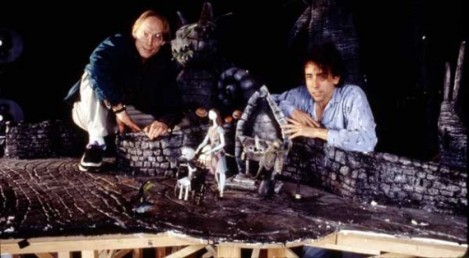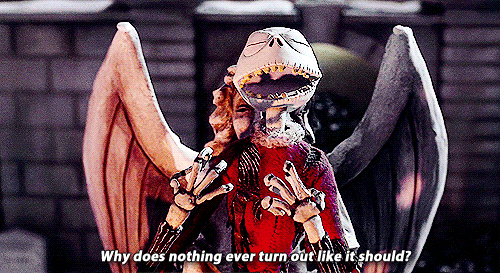“‘Twas a long time ago, longer now than it seems,” that Tim Burton’s The Nightmare Before Christmas was released–twenty years ago, to be exact. The film is nearly as old as I am, and I count the characters of Tim Burton and compositions of Danny Elfman among the most influential forces from my childhood, right alongside Harry Potter. This is a love letter of sorts, maybe to the creators of the film, maybe to its quirky characters I grew up with, or maybe to the generation that has embraced the Nightmare Before Christmas phenomenon. Whatever the case, I probably speak for the majority of those in my generation when I say that I have a lot of feelings about this animated masterpiece, and its 20th anniversary is as good a time as any to share them.
The Nightmare Before Christmas is, admittedly, an odd movie to say the least. The film was produced under Disney-owned Touchstone Pictures, as it was deemed both too strange and mature for the Disney label and its mainstream audience. When it was discovered that as a toddler I was allowed to watch this experimental and rather dark film, my mom got a lot of flak from my relatives. Regardless, she held fast and it remains one of the most frequently viewed movies of my childhood. I still tell her that it was the best parenting decision she ever made, and I’m only partially joking.

The animation feats alone achieved by The Nightmare Before Christmas are impressive, and it is (at least to me) the Holy Grail of stop-motion animation. Using 20 stages and 227 puppets, the movie is comprised of a total of 109,440 frames. To achieve Jack’s expressiveness, animators created several hundred changeable heads, painstakingly changing them out after nearly every shot. And as any fan knows, the film’s soundtrack is timeless, and because of its heavy influence in the story of the film itself, the success of Nightmare can be attributed almost equally to composer Danny Elfman, who also stepped in as Jack’s singing voice. Granted, it’s no Alan Menken, but considering a Burton/Elfman collaboration has arguably more chemistry than a Burton/Depp film, it doesn’t need to be.

While the animation and score are top-notch, the writing and themes of the film are what http://humanrightsfilmnetwork.org/alprazolam really tie it together and give it a unique edge. Jack Skellington isn’t perfect; in fact, he screws things up more than anyone else in the film and in a sense becomes his own antagonist. He ultimately redeems himself and saves his friends, but not without ruining Christmas and suffering the consequences. Even though Jack “believed in himself,” a value that countless children’s movies uphold as paramount, he did so to such an extent that he became cocky and ignored the opinions of others. Even though his intentions were good, he went about things in entirely the wrong way. But this is important, as through doing so he finds himself, and discovers his weaknesses, his strengths, and comes to terms with who he is and who is important in his life–er, death.

The Nightmare Before Christmas also tells the story of how important it is to celebrate diversity and differences in worldview before taking a practice and interpreting it as one’s own. Had Jack sought out residents of Christmas Town to understand their thought processes rather than observing and proceeding to capture them, things might have turned out differently (or maybe Santa Claus would have attempted to take over Halloween Town?). Either way, it shows how necessary it is to collaborate with others before making executive decisions, a lesson that is of upmost importance and also one that should be the focus of more American-made children’s movies. Who knows, maybe the world would be a better place if people took the overarching themes of tolerance and acceptance in such films to heart.
So I suppose what I’m trying to say is thank you, Tim Burton, Danny Elfman, Henry Selick, and everyone else who took a risk by making a film that strayed from the beaten path. Even after two decades, The Nightmare Before Christmas holds up as a feat of music, stop-motion animation, and storytelling, and only continues to grow in popularity as a holiday classic. So if you’re unsure about what to do on Halloween this year, pop in Nightmare Before Christmas and give it a watch if you haven’t in a while (or even if you have). Here’s to another twenty years of a magical film that seems to only improve with age.


